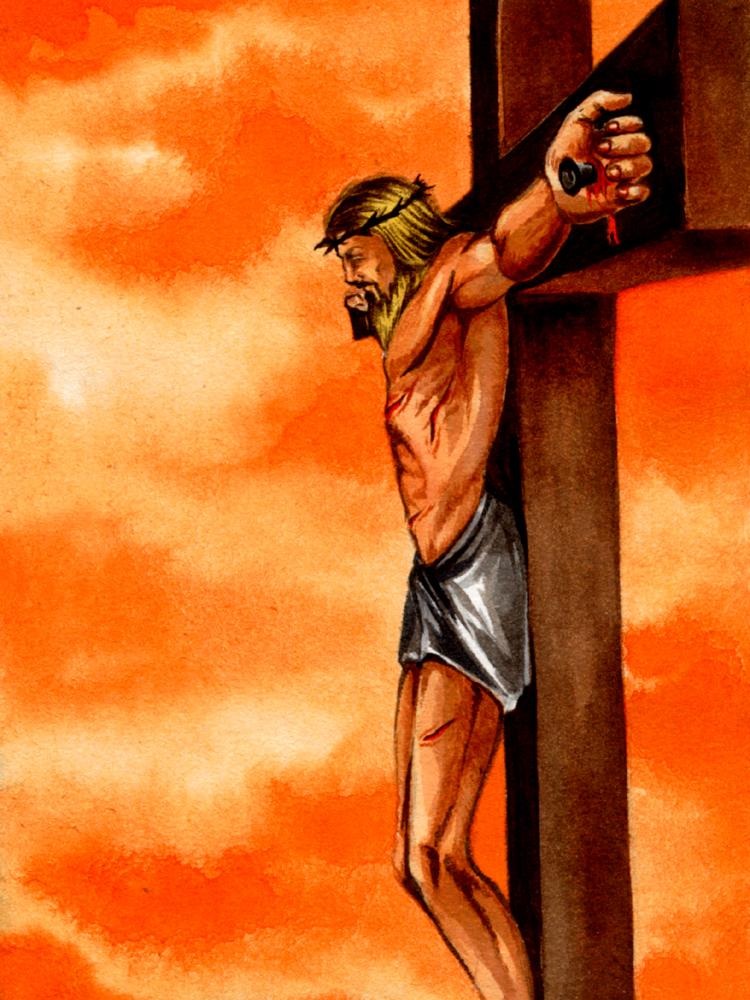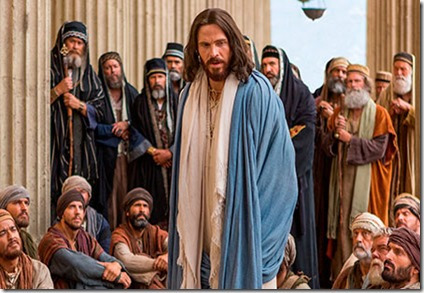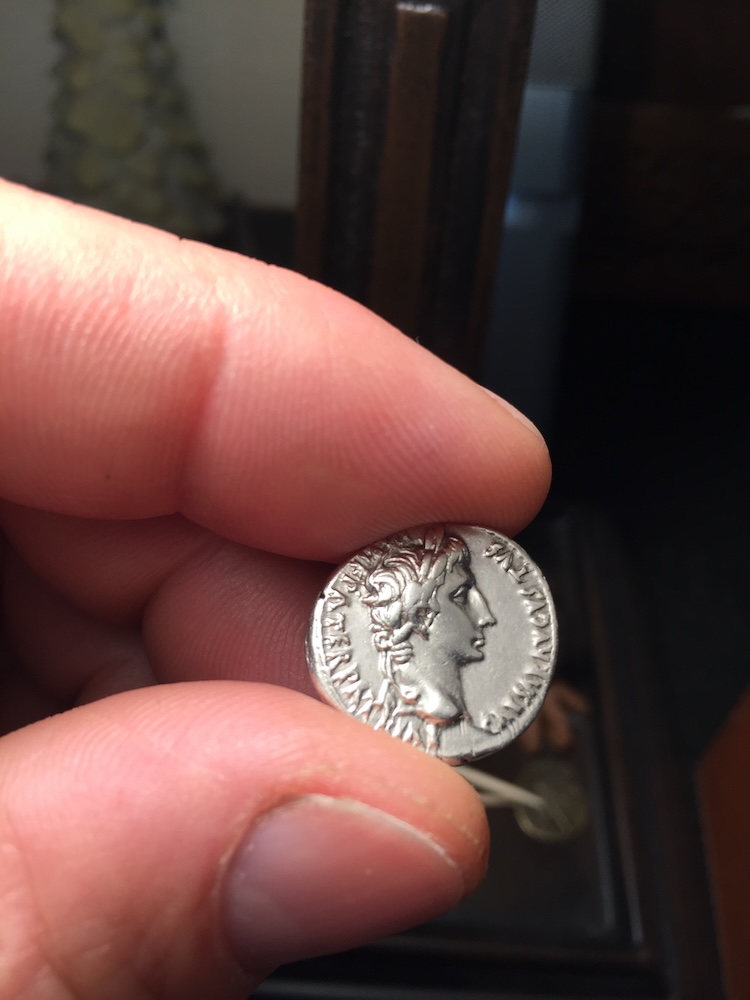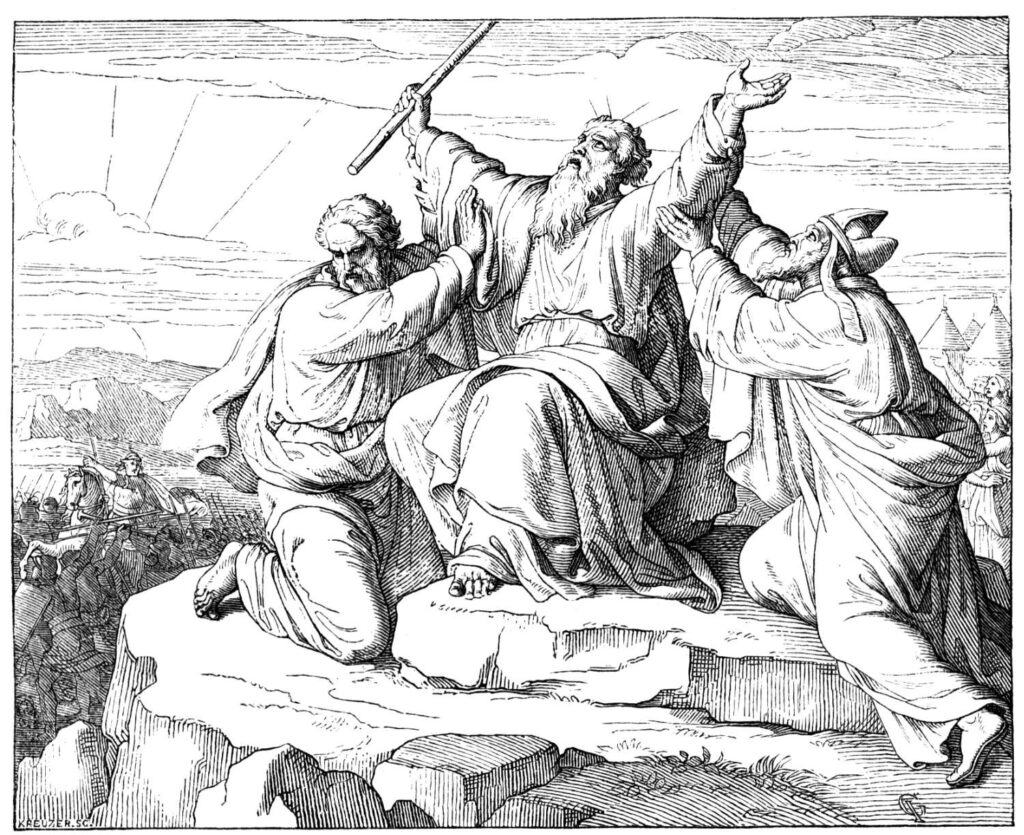
Deuteronomy 21

Deuteronomy 21:18–21, Stubborn and rebellious son. Many of the laws of YHVH’s penal code are preventative in nature. Such is the case with the wayward and rebellious son. In ancient Israel, there were no prisons, since it was the goal of YHVH’s Torah-laws to root out evil before it spread like a cancerous tumor endangering society. In the case of the law of the rebellious son, parents’ love for YHVH must supersede even that of their children. This helps to ensure that children will remain on the straight and narrow path when they become adults. What steps are you taking to prevent your children or grandchildren from going down the path of faithlessness and rebellion?
Deuteronomy 21:22, Put to death…hang him on a tree. A man condemned of a crime worthy of capital punishment is to be put to death, and then hung on a tree. He is not killed by hanging. According to S. A. Hirsch, for two crimes only (blasphemy and idol worship) was the command given to hang the bodies. Even though these crimes brought on such an ignominious and shameful end as being hanged, Elohim still requires that the corpse—even of a criminal—to be honored by burial because it was still the life a human, who was created in Elohim’s image. As Hirsch notes, an unburied corpse is to be considered a disgrace and a degradation to all living humans. It also defiles the land, as this verse says. This commandment gives us some insight into how YHVH views the sanctity of life. The abhorrent practice of abortion, for example, degrades life in many ways. This not only includes how the baby is murdered in the mother’s womb, but how it is disposed of afterwards.
But why not just kill the criminal and then bury him? Why hang him on a tree? Much of Torah’s criminal justice system is based on preventive action. By hanging the criminal’s corpse on a tree, this signaled to all would-be criminals that this would be their fate too should they violate any of YHVH’s Torah commands that required capital punishment. To our modern sensitivities, this seems cruel, gruesome and morbid. But YHVH’s ways are not men’s ways. This preventative measure likely prevented many crimes from occurring in the first place thus alleviating much criminality as well as the necessity for capital punishment. As the old adage goes, “Prevention is the best medicine.”
Deuteronomy 21:23, For a hanging person is a curse of Elohim. Let’s compare this passage with Paul’s statements in Galatians 3:13 and then consider both of these passages in light of Isaiah 53:4–10.
Messiah hath redeemed us from the curse of the law, being made a curse for us: for it is written, Cursed is every one that hangeth on a tree. (Gal 3:13)
Surely he hath borne our griefs, and carried our sorrows: yet we did esteem him stricken, smitten of Elohim, and afflicted. But he was wounded for our transgressions, he was bruised for our iniquities: the chastisement of our peace was upon him; and with his stripes we are healed. All we like sheep have gone astray; we have turned every one to his own way; and YHVH hath laid on him the iniquity of us all. He was oppressed, and he was afflicted, yet he opened not his mouth: he is brought as a lamb to the slaughter, and as a sheep before her shearers is dumb, so he openeth not his mouth. He was taken from prison and from judgment: and who shall declare his generation? for he was cut off out of the land of the living: for the transgression of my people was he stricken. And he made his grave with the wicked, and with the rich in his death; because he had done no violence, neither was any deceit in his mouth. Yet it pleased YHVH to bruise him; he hath put him to grief: when thou shalt make his soul an offering for sin, he shall see his seed, he shall prolong his days, and the pleasure of YHVH shall prosper in his hand. (Isa 53:4–10)

Rashi, a medieval Jewish Bible commentator, has an interesting comment on Deuteronomy 21:23. “For a hanging person is an insult of God. It is a degradation of the King, for man is made in the likeness of His image, and Israel are His sons. This can be compared to two twin brothers who resembled each other. One became a king, while one became ensnared in banditry, and was hung. Whoever would see him hanging would say, ‘The king is hanging!’” The rabbinical commentary on Rashi’s commentary ponders the meaning of Rashi’s statement as follows: “[Rashi’s] parable seems difficult. Could people really look at a hanging corpse and think that the King of kings [sic] is hanging? Also, what does Rashi add by noting that ‘Israel are his sons’? And finally, why does Rashi say that ‘one became a king,’ rather than ‘one was a king’ After all, God cannot be said to ‘have become’ a king” (The ArtScroll Sapirstein Edition Rashi/Deuteronomy, p. 227). These comments are curious in light of the fact that these Jewish sages were not believers in Yeshua the Messiah. How would you answer the commentator’s question from a Messianic perspective as pertaining to Yeshua?
Deuteronomy 22
Deuteronomy 22:1–4, Caring for a brother’s property. Concern for the property of others is the subject of these verses. In this respect, let us not forget the second half of the shema: You shall love your neighbor as yourself (Lev 19:18). What is often the response of a wicked with respect to concern for their neighbor’s well being? Genesis 4:9 gives us the answer.
And YHVH said unto Cain, Where is Abel thy brother? And he said, I know not: Am I my brother’s keeper?
A lack of love for one’s neighbor has ancient roots in the human history!
On this passage of Scripture, one rabbinical commentator states: “[T]he commandment to return lost property is ‘fundamental’ and that ‘all society depends upon it.’ It is not just a matter of one person taking care of another’s possessions or of ‘loving’ another. What is important here is the critical matter of ‘trust’ among human beings. A society depends upon the faith people place in one another. Without people feeling that they can rely upon one another—that others are looking out for what belongs to me and I must look out for what belongs to them—society collapses in suspicion, selfishness, and bitter contention” (A Torah Commentary For Our Time, vol. 3, p. 149).
Deuteronomy 22:10, You shall not plow with an ox and with a donkey (that is, a kosher animal with a non-kosher animal). With regard to human relationships, Baal Ha Turim, the ancient Jewish Torah scholar, interprets this verse to mean that a righteous person should not enter into a business partnership with a wicked person. The Mishnah states: “Distance yourself from a bad neighbor; and do not bind yourself to a wicked person. (Avos 1:7, The ArtScroll Baal HaTurim Chumash, p. 2065). Elsewhere and similarly, the Torah and the rest of the Tanakh forbid YHVH’s people from intermarrying with heathens or forming alliances with them. Scripture also records the devastating consequences upon YHVH’s people when the committed this gross error. What does the Testimony of Yeshua say about being unequally yoked with unbelievers?
Be not deceived: evil communications corrupt good manners. (1 Cor 15:33)
Be ye not unequally yoked together with unbelievers: for what fellowship hath righteousness with unrighteousness? and what communion hath light with darkness? And what concord hath Messiah with Belial? or what part hath he that believeth with an infidel? And what agreement hath the temple of Elohim with idols? for ye are the temple of the living Elohim; as Elohim hath said, I will dwell in them, and walk in them; and I will be their Elohim, and they shall be my people. Wherefore come out from among them, and be ye separate, saith the YHVH, and touch not the unclean thing; and I will receive you, And will be a Father unto you, and ye shall be my sons and daughters, saith the YHVH Almighty. (2 Cor 6:14–18
Deuteronomy 22:5–12, Various laws. Matthew Henry in his commentary says of these various laws: “God’s providence extends itself to the smallest affairs, and his precepts do so, that even in them we may be in the fear of the Lord, as we are under his eye and care…. If we would prove ourselves to be God’s people, we must have respect to his will and to his glory, and not to the vain fashions of the world. Even in putting on our garments, as in eating or in drinking, all must be done with serious regard to preserve our own and other’s purity in heart and actions.” Let’s think and meditate on this.

Deuteronomy 22:6–7, If a bird’s nest. What does this passage teach us about caring for the environment and being good stewards of YHVH’s creation? How about showing mercy to animals and man’s role in preserving the species? What are the broader implications here? What are you doing to protect the environment, and to be good stewards of this earth? This starts with each of us in our own home and garden—the tiny spot on earth that YHVH has given us to tend and keep.
Deuteronomy 23
Deuteronomy 23:2, A child of incest [Heb. mamzêr] shall not. The Hebrew word mamzer (translated in the KJV as bastard; NKJV one of illegitimate birth) means “a child of a prohibited marriage.”Contrary to uninformed opinion, this is not referring to one born out of wedlock (the result of fornication or premarital relations), but rather the fruit of an incestuous or adulterous relationship (The ArtScroll Stone Edition Chumash, p. 1054). According to S. R. Hirsch, a Jewish Torah scholar, a mamzer was disadvantaged legally in no other way except that he was excluded from the assembly or congregation (qahal) of YHVH’s people. According to The Theological Wordbook of the Old Testament, the Hebrew word qahal is equivalent to the Greek word ecclesia,which is commonly translated as church in the NT (ibid., vol. 2, p. 790). What does Torah’s treatment of a mamzer say about YHVH’s view of the sanctity of marriage and the family and the upholding of such as a cornerstone institution within the assembly of the saints? Hirsch comments on this verse, “[A] mamzer accordingly represents, by his existence, a sin against those laws by which God wishes marriage in His qahal to be elevated out of the sphere of simply physical association by that which [the Talmud in] Kiddushin [73a] expresses” (Judaica Press The Pentateuch/Deuteronomy, p. 456).
In the Torah, premarital sex is not a capital offense. When it happened, the man was either to marry the young lady, or he had to pay a fine to her father. Incest, however, like homosexuality, was an abomination in YHVH’s eyes (Lev 18:6–18, 26–29), thus it would stand to reason that YHVH would take a harder stand on the product of such a sexual union. The point is to teach his people not to get involved in such sinful sexual practices in the first place.

Deuteronomy 23:9–14, When the army goes out. With regard to the sanctity of the Israelite’s army camp, the Jewish sages teach that whereas other armies triumph by force of numbers and arms, Israel’s success is in the hands of Elohim, and, therefore, its army’s most potent weapon is its righteous behavior (The ArtScroll Stone Edition Chumash, p. 1055). Holiness and righteousness (i.e., obedience to YHVH’s commands coupled with trusting faith in Yeshua and in his blood atonement) can help us to defeat our enemies (see Rev 1:5; 12:11, 17; 14:12). When a saint views himself or herself as the temple of the Holy Spirit, as a holy priesthood, as a witness for Yeshua and his kingdom in this world, and that holiness and righteousness in all that one does, says and thinks, then they will view physical cleanliness as a key component in their daily lifestyle. Although the phrase, “Cleanliness is next to godliness” is not found in the Scriptures, it is nevertheless a true statement in light of this Torah passage.
Deuteronomy 23:9, Keep yourself from every wicked thing. This principle not only applies to physical warfare but also to spiritual warfare. Keeping oneself from wicked things when engaging in spiritual warfare is a subject that many Bible teachers overlook. The focus is usually on the enemy or the battle tactics employed, but, not on the condition of soldier who is going up against the enemy of the people of Elohim. This section of the Torah covers this oft-overlooked subject (vv. 9–14).
The word wicked verse nine is the generic Hebrew word ra or ra’ah meaning in its most basic sense “evil, bad or distress.” So what does the Torah state in this passage that makes a person evil or bad and unclean and is thus offensive to Elohim? Simply this: bodily emissions that happen to naturally emanate from the human body whether it be human waste or seminal emissions. Such occurrences take a man from a state of ritually purity or being clean (Heb. tahor) to being unclean (Heb. tamay). The solution to the problem, as in the case of nocturnal emissions, is cleansing by water, and in the case of the eliminations of bodily waste, burying the waste. This includes washing one’s hands after using the toilet as well as bathing and washing one’s clothing and bedding regularly. What this teaches us is that if one goes into battle in an unclean state, this is offensive to Elohim, and the soldier may not have the favor of Elohim, while he is engaging the enemy in battle. This is not a good thing for the warrior!
When it comes specifically to spiritual warfare (as outlined in 1 Cor 10:4–6 and Eph 6:10–18), the drash or homiletical level understanding of this passage teaches us that when engaging the enemy in spiritual battle, the saint must be as clean as possible both physically and, more importantly, spiritually. On the spiritual side, this means that all unconfessed sins need to be repented of and that all illicit behavior must be eliminated from one’s life if one expects the benefits of YHVH’s miraculous aid. One must be continually washed clean of sin by the blood of Yeshua the Messiah and by the water of the Word and the Spirit of Elohim (1 John 1:5–10, esp. v. 9).
Because these principles of ritual and spiritual purity are usually not taught to the saints, it is no wonder that many times our prayers are not answered and that the enemy trounces Christians on the streets, in the courts, in the political arena and many other spiritual battlefields in various venues in our society.
All this is to say that the saint must clean up his own act and house first before confronting the enemies of Elohim. Both Yeshua and Paul address the hypocrisy of those who point their finger at others while guilty of the same or similar sins.
“Judge not, that you be not judged. For with what judgment you judge, you will be judged; and with the measure you use, it will be measured back to you. And why do you look at the speck in your brother’s eye, but do not consider the plank in your own eye? Or how can you say to your brother, ‘Let me remove the speck from your eye’; and look, a plank is in your own eye? Hypocrite! First remove the plank from your own eye, and then you will see clearly to remove the speck from your brother’s eye. (Matt 7:1–5)
Therefore you are inexcusable, O man, whoever you are who judge, for in whatever you judge another you condemn yourself; for you who judge practice the same things. But we know that the judgment of Elohim is according to truth against those who practice such things. (Rom 2:1–2)
Deuteronomy 23:18, Price of a dog. The price of a dog, according to Keil and Delitzsch, is not the price paid for the sale of a dog, but is a figurative expression used to denote the gains of a male prostitute, who was called thus by the Greeks because of the dog-like manner in which homosexuals debase themselves sexually. YHVH considers homosexuality so abominable that he specifically lists dogs (along with sorcerers, murders, idolators and liars) as being excluded from the New Jerusalem (Rev 22:15).
Deuteronomy 24
Deuteronomy 24:1–4, When a man takes a wife. For an explanation of this passage in light of YHVH-Yeshua’s remarriage to adulterous Israel as sit relates to the gospel message, see notes at Romans 7:1–6.
Deuteronomy 24:1, Write her a bill of divorcement. Divorce laws and a bill of divorcement (Heb. get)is the subject of this passage. This verse forms the basis of the divorce laws of the Torah and the actual get or bill of divorce, which was a written document that a husband gave to his wife because of some immoral activity on her part (The ArtScroll Stone Edition Chumash, p. 1058). The subject of divorce and remarriage is a large subject and is beyond the scope of this present work, yet it is interesting to note that Moses himself, the one who YHVH used to pen the Torah, was very likely divorced and remarried. (We have discussed this subject in Parashat Yitro.) YHVH himself divorced Israel and gave her a get because of her unfaithfulness to him, though he never remarried. (See the teaching below.)
The Real Purpose for Divorce Under Torah
Deuteronomy 24:1–4, Natan’s Notes on the Biblical Reasons for Divorce

Divorce and remarriage is a highly controversial topic due to the emotional nature and its prevalence in society. Thus arriving at a balanced biblical perspective is not always easy. Those who advocate divorce and as well as those who are against it have their favorite scriptures that justify their position, while each side tends to overlooks the Scriptures that disagree with them. In this study, we will look at one aspect of divorce and the reasons that Scripture permitted it under certain circumstances. To be sure, this is a delicate subject that affects the lives of countless people.
Jeremiah 3:14, After YHVH divorced Israel (v. 8), he was still married to her. What’s going on here? Even though YHVH divorced Israel, he still considers himself married to her because he had made a covenantal vow with Israel, and vows can’t be broken (except by death or under very stringent requirements). Period.
Look at Hosea 1:2 cp. 3:1–3. Hosea’s actions toward Gomer, his adulterous wife, is an example of YHVH’s unfailing love for is Israel, who was his spiritual adulterous wife. Marriage is a covenant vow that when broken by adultery requires the death penalty for the offending party. Gomer committed adultery. Yet Hosea brought her back and redeemed her from adultery. He loved her unconditionally and laid his life down for her (as YHVH does for us, see Eph 5:28).
Deuteronomy 24:1 cannot be used as a justification for divorcing under just any circumstances. Only if the wife has committed or is committing sexual immorality (in Hebrew ervah) can her husband put her away. A bill of divorcement, in Hebrew called a get, must first be issued for the purposes of restoring the immoral woman. One cannot put their wife away for any reason. Even Yeshua confirmed this in Matthew 5:32. Ideally, according to the Torah and to Yeshua, some sexual immorality (in Hebrew ervah)has to have been committed for a man legally to divorce his wife according to the Torah-law. I inserted the word ideally because there are seldom ideal situations in life, and humans rarely live up to YHVH’s ideal moral and spiritual standards. As such, Yeshua admits that the Torah as administered by Moses allowed for divorce to occur, sadly, because of the hardness of human hearts (Matt 19:8). What does “hardness of heart” mean? Scripture doesn’t say. The following is simply my speculation on what this means. For example, I would not expect one to be required to stay married if several severe conditions existed such as physical abuse, criminality, drug addictions, abandonment, total dereliction of responsibilities or extreme heathenism. Such sins make it all but impossible for a righteous person to remain in such a spousal relationship. A spouse who is practicing such has violated their contractual marriage vows and thus there legally and technically is no marriage. A believer shouldn’t be forced to remain in such a relationship. Having said this, it is the saint’s duty, as much as possible, to vet out a prospective mate before marrying them to ensure that they have never been involved nor are currently involved in such activities. One should only marry an Elohim-fearing, commandment-keeping, born again faithful believer in Yeshua the Messiah, who has a long fruit-bearing track record of such a lifestyle. Again, this is Natan Lawrence speaking, not Scripture, but it is my best understanding of scriptural principles as they relate to marriage and divorce.
Marriage between two believers is a vow with YHVH. Marriage between two unbelievers is something else. It is simply an agreement or contract between two people. Maybe YHVH is part of it, maybe he is not. It all depends on the vows and the situation.
Deuteronomy 24 is not a permission to divorce and to remarry. Rather it is a judgment because of sin. It must be viewed in this manner. YHVH’s Torah-laws, statutes and ordinances are for when things go well. The judgments of Torah, on the other hand, were for when things went wrong. A judgment was meted out because some Torah-law had been broken and now a solution to the problem had to be found or worked out within the framework of Torah. This is the situation Deuteronomy 24 is dealing with respect to the marriage covenant that has been violated. A get was a temporary legal measure to protect the adulterous woman from stoning, so that the marriage could be restored.
In the Torah, divorce was to be a temporary situation to bring the sinning wife to repentance and to restore YHVH’s perfect ideal of marriage—to restore order back into the home, to heal the family structure. If the sinning wife refuses to repent and remarries (Deut 24:2–3), and continues in her sin and she becomes divorced again or if her second husband dies, then this severs the marriage covenant permanently. This act on her part renders the marriage covenant null and void forever.
Again, a bill of divorcement or a get under the Torah was a temporary legal measure to protect the adulterous woman from stoning, so that the marriage could be restored. Matthew 1:19 demonstrates this. Joseph acted righteously in not putting Miriam (Mary), his pregnant betrothed wife, away, which could have resulted with her being stoned to death. By all outward appearances, she was guilty of adultery, but Joseph’s act of mercy was an example of his exercising mercy over judgment. It ended up that she was pregnant not by a man, but by the Spirit of Elohim resulting in the birth of Yeshua the Messiah. Thus Joseph’s act of mercy spared the Messiah from potential death.
In Malachi 2:10–17, YHVH addresses the issue of divorce. Here the prophet speaking for YHVH is discussing the treacherous nature and misuse of divorce, which is one of the reasons YHVH says he hates divorce (v. 16). This is because divorce often results in treacherous dealings between people (vv. 10–11, 14), it violates and profanes a sacred covenant (vv. 10), and it profanes the holy institution of marriage, which YHVH loves (v. 11), because it is often the result of adultery (vv. 11–12), and adultery leading to divorce often causes a man to leave the wife of his youth (v. 14) thus breaking the oneness of marriage (v. 15), and divorce covers one’s garments with violence (v. 16). Again, for these reasons, YHVH hates divorce, which is why he refers to it as “evil” and unjust (v. 17).
According to YHVH’s Torah standard, the righteous are to care for widows and orphans, not to create them as a result of the misuse of Torah’s laws regarding divorce.
In Matthew 5:32, Yeshua’s words fit into the above context. Only, ideally under the strictest standards of the Torah, for sexual immorality is divorce permissible. Otherwise divorce is unlawful, since the couple is legally still married and a bill of divorce (in Hebrew, called a get) is simply a temporary measure for the purpose of reconciling the couple and bringing the marriage back together.
In Matthew 19:3, when Yeshua mentions divorce “for just any reason,” he is referring to the Pharisaical schools of Beit Shamai and Beit Hillel of the time. The Pharisees that came to him asking the question were from School of Hillel. Yeshua is taking the Beit Shamai conservative position as was the case when John the Baptist took Herod to task for his adultery. Verse 8 shows that there is a provision for divorce but it is not YHVH’s perfect will. Rather it is a judgement and an indictment against carnal men.
Again, in 1 Corinthians 7:10–11, we see that the primary purpose of divorce is for reconciliation of the marriage, not so that one can justify themselves in getting out of a less than ideal marriage in order to fetch themselves another spouse. Divorce and remarriage, as millions of people will attest to, causes a shipload of unintended negative consequences on the lives of many people and often for generations to come. It is something to be avoided if at all possible.
Yeshua Teaches About Divorce

While on this earth, Yeshua taught on many subjects pertaining to all areas of human existence—136 in all. He taught on everything from angels to worship, from money to taxes, sexuality to celibacy, fasting to food, joy to sorrow and yes, on the subject of divorce as well (see Matt 19:1–12). Malachi says that YHVH hates putting away, a Hebraism for divorce (Mal 2:16). Yet Yeshua says in Matthew 19 that in the Torah divorce was permitted if one of the parties had a hardened heart resulting in irreconcilable differences. Adultery was cause for divorce if the offending party refused to repent.
Marital divorce was far from a popular subject in ancient times even as it is today. Sadly it results in division and strife and usually leads to sorrow and pain that can last a lifetime and beyond involving many people. But how many Christians know that YHVH was married to Israel, and because of her unfaithfulness, he had to divorce her. One biblical prophet after the other lamented this sad affair. Yet, at the same time, YHVH revealed to them a message of hope leading to restoration through—wait or it!—Yeshua the Messiah’s death on the cross! This is a news flash to most Bible believers—a message they have never heard preach from the pulpit on Sunday or any other time, but that has been hidden in plain sight in the pages of our Bibles all along.
What follows is the revelation of the marriage, divorce YHVH-Yeshua to his ancient Israelite bride, and then the remarriage to his New Covenant Israelite bride at his second coming. This then is the rest of the story of the gospel message—the back story that you probably have never heard before and never knew was even in the Holy Scriptures, yet involves each Christian believer in a beautiful way, for it reveals the sacrificial love YHVH Elohim and Yeshua the Messiah in a deeper and more expansive way than one ever imagined. This understanding should help to stoke the fires of each Christian of their first love for Yeshua the Messiah, their soon coming Heavenly Bridegroom.
The Scriptures are clear, YHVH-Yeshua (while in his pre-incarnate state) married the whole house of Israel (i.e., all twelve tribes) at Mount Sinai and the Torah was the marriage agreement (See The Bible: The Good News – The Story of Two Lovers & YHVH’s Set-Apart Feast Days Are the Outline of that Love Story: A Plan of Redemption where the Jewish wedding is outlined historically and prophetically in a biblical context, available at http://www.hoshanarabbah.org/pdfs/love_story.pdf). Ezekiel describes the marriage between YHVH and Israel succinctly and allegorically in Ezekiel 16:6–8.
Yet because both the houses of Judah and Israel committed spiritual adultery by whoring after foreign gods and lovers and failed to live up to their marital agreements they had made with YHVH at Mount Sinai when they said “I do” three times (Exod 19:8; 25:3, 7). YHVH sent prophet after prophet as recorded in the pages of the Tanakh (Hebrew Scriptures) in attempts to turn the heart of Israel back to him, yet her heart was hardened toward him and she refused to repent of her adulteries; therefore, YHVH was forced to do that which he hates and dissolve the marriage and divorce Israel.
In light of these issues, what are the prophetic implications of the divorce of YHVH from the nation of Israel and his future remarriage to the same nation? To understand this issue and to gain a deeper understanding of YHVH’s wonderful plan of salvation for his people, read “The Prophetic Implications of Divorce in Light of the Two Houses of Israel,” which is available at http://www.hoshanarabbah.org/pdfs/divorce.pdf. In these teaching articles, Nathan reveals the full story of the marriage, divorce and remarriage of YHVH-Yeshua to his people and how this involves each of us. As with everything else in the Bible, Yeshua the Messiah and the message of the cross is central to this story. It is the gospel message expanded in a way that you never imagined, and which ties the whole Bible in a new way from Genesis to Revelation. The Bible is a literal love story!
Deuteronomy 24:4, Her first husband who divorced her shall not take her again to become his wife.The prophetic implications of this are astounding in light of YHVH’s divorce of unfaithful Israel and his eventual remarriage to her. The whole message of the gospel and Yeshua’s death on the cross relate to this verse. (See the teaching below.)
Deuteronomy 24:8–9, Remember what YHVH…did unto Miriam. Moses’ sister Miriam was struck with a skin disease because she spoke evil against her brother. Slander is defined as making false or damaging statements about someone. The Torah keeps returning to the subject of “gossip, slander and other forms of selfish and antisocial behavior” (The ArtScroll Stone Edition Chumash, p. 1060). Obviously such activity was a problem then as it continues to be now. It can literally destroy human relationships, families, marriages, ministries and congregations. The interesting things is that those who commit such sins usually fail to admit their error, yet such is all too clear to those who are their victims. (Read Prov 6:16, 19 and Jas 3:1–12.)

Deuteronomy 24:19–22, When you reap. In many places, the Scriptures command that the righteous give to the poor (the stranger, the fatherless and the widow). Yeshua said that the poor would always be present (Matt 26:11). Let’s never forget that many of us may have once been poor, or could become poor were it not for YHVH’s grace. Therefore let’s be generous and give as we are able to support first the poor of our immediate family, then our larger family, then our spiritual family and then those in the community around us. How charitable are you in your giving? Is your heart open to YHVH to obey him when he directs you to give to someone in need?
Deuteronomy 25
Deuteronomy 25:4, You shall not muzzle. According to S. R. Hirsch, this law applies not only to animals, but to workmen as well. It stands to reason logically, for if YHVH cares about feeding animals while they are working, how much more should employers be concerned for their workmen? Rashi, the Medieval Jewish Torah scholar, disagrees and says it refers only to animals (and not to workmen) and specifically to those animals that are involved in the production of food as would be the case with an ox that was used in treading out grain (to separate the kernel from the chaff). Paul, on the other hand, like Hirsch disagrees with Rashi and views this Torah command as having a broader applicable proverb implying that an employer should not deprive his employees of their wages. He specifically applies this principle to individuals who minster the gospel (1 Cor 9:9; 1 Tim 5:19). Those who work in YHVH spiritual field (i.e., the church), Paul reasons, should be supported by those they serve.

Deuteronomy 25:13–16, Different weights. When the Torah was written there was no money as we know it today. Coinage originated around 600 B.C., about 1000 years after the Torah was written. Prior to coinage, people carried around nuggets of gold and silver and a certain amount would be weighed out using stone weights as a counter balance. Dishonest merchants would carry two sets of stones: a heavy and a light stone. If a stone was represented as weighing one shekel the dishonest merchant would have a stone weighing more than a shekel for cheating a seller when buying goods, and one weighing less than a shekel for cheating a buyer when selling a good. What are some modern parallels of dishonest weights and measures? For example, at your job, do you charge your employer for eight hours when you only worked seven and three quarters hours? Do you give an honest day’s work to your employer or clients (if self-employed)? How many times have you gone to the store to buy some ice cream or a can of juice and you get home and you read the label and it’s a now a smaller volume or weight than in time’s past, but for the same price? How about a box of cereal or chips? The box is large, but in reality it is only half full. The rest is air. This is a form of false advertising. You pay more and get less. The deception of false weights and measures comes in many forms. Inflation is another example. Your money is worth less and less as time goes on. This is due to the fraudulent practices of the greedy mega-bankers and the deceptive fiscal policies of greedy government officials who control the world’s economies. The list goes on and on of examples of diverse weights and measures. This is how most of the mega-rich become wealthy—by cheating others. But the rich are not the only ones guilty of this sin. Various forms of dishonesty, greed, covetousness and deceitfulness occurs at all levels of society and among all people.

Deuteronomy 25:19, Blot out Amalek. The Hebrew name Amalek literally means “I am king.” Remember how the people of Amalek attacked the children of Israel as they were coming out of Egypt (Exod 17:8)? These heathens attacked the weary, stragglers and weak Israelites who were falling behind in the rear ranks (Deut 25:18). For this evil deed, Elohim put a curse on them. What can we learn about Israel’s ancient enemies and how it relates to us today? Who are the modern “Amalekites” and how can the saints defeat them? Both human and demonic entities exist that are continually endeavoring to kill, steal and destroy at the expense of others.
The Israelites ended up defeating Amalek militarily under the leadership of Moses and Joshua, when Moses stood on a hill with his arms outstretched in the form of a cross (Exod 17:10–13). It was at this spot that Israel learned that YHVH Elohim was their spiritual banner (Heb. Yehovah Nissi; Exod 17:15).
There is a spiritual lesson in this story for us today. Amalek may be viewed symbolically as representing the perennial enemy of YHVH’s people. That enemy includes this world, the flesh and devil which are intent on destroying the saints as they are exiting spiritual Egypt and beginning their long trek through the wilderness of life en route to Promised Land of our spiritual inheritance, which is the kingdom of Elohim from heaven.
This reminds us of Yeshua’s Parable of the Sower (Matt 13:3–9) where the good seed of the Word of Elohim was sown on four types of soil. The seed failed to grow in the three types of soil representing the world, the flesh and the devil (Matt 13:18–23). This is another picture of Amalek. What defeated Amalek? Joshua the valiant warrior defeated the Amalekites militarily, while at the same time Moses was perched on a hill overlooking the battlefield with his arms raised to heaven. Both Joshua and Moses are a prophetic picture of Yeshua the Messiah. Joshua’s Hebrew name is Yehoshua, which is the long version of the name Yeshua or Joshua in English. Both names contain the Hebrew word for salvation.
At the same time on the mountain, Moses’ arms grew tired and had to be supported by Aaron and Hur, and in so doing his arms took the form, more or less, of a cross or the even universal sign of surrender. What are these things a spiritual picture of? Moses and Joshua combined form a prophetic picture of Yeshua defeating the world, the flesh and the devil at the cross on Golgatha’s hill. Coincidentally, as Yeshua had two other men crucified with him—one on each side, Moses had a man on each side of him. This is another prophetic picture pointing forward to the Messiah and his death on the cross.
Another way to look at the picture of Moses with his arms upraised is this: When Moses surrendered to the will of YHVH and completely trusted in him, the Israelites experienced victory over their enemies. From this we learn that when we are facing enemies who are intent on destroying us, we too need to surrender to the will of YHVH and trust in Yeshua, who is our salvation. The Bible declares that we are more than conquerors through Messiah and that nothing can defeat us if we are in the will of our Father in heaven (Rom 8:37 cp. vv. 28–29), and greater is he that is in us than he that is in the world (1 John 4:4). And finally, if Elohim is for us, who can be against us (Rom 8:31)?
Only when Moses’ arms were outstretched and raised up to heaven in openness, surrender and supplication to the Almighty did Joshua experience victory over the Amalekites. Similarly, only through prayer and the intercession with arms open and upraised to heaven as we beseech our Heavenly Father, and as we come before his throne through the blood of the resurrected Yeshua the Messiah in heaven, who is acting as our Great High Priest before Elohim’s throne, will we be able to defeat the spiritual enemies that are attempting to prevent us from entering our own eternal Promised Land.
The enemies of our salvation will attempt to destroy us when we are weak, tired and falling behind in our spiritual walk, even as Amalek attacked the weak and straggling Israelites who had fallen behind the camp. However, when we recognize our plight and weakness and then determine to fight, we have Yeshua’s victorious death on the cross as well as his help in heaven to overcome our enemies.
One of YHVH’s covenant names is Yehovah Nissi or YHVH Is My Banner. A military banner is something used to help build the morale of troops during the battle. YHVH is our strength and morale booster in the time of battle, and through or faith in YHVH-Yeshua, we already have the victory over the world, the flesh and the devil!
This lesson illustrates the fact that the Scriptures contain many rich and deep spiritual mysteries and truths that if it weren’t for the physical examples or prophetic shadow-types contained therein we might be bereft of the revelatory and powerful lessons contained therein.

